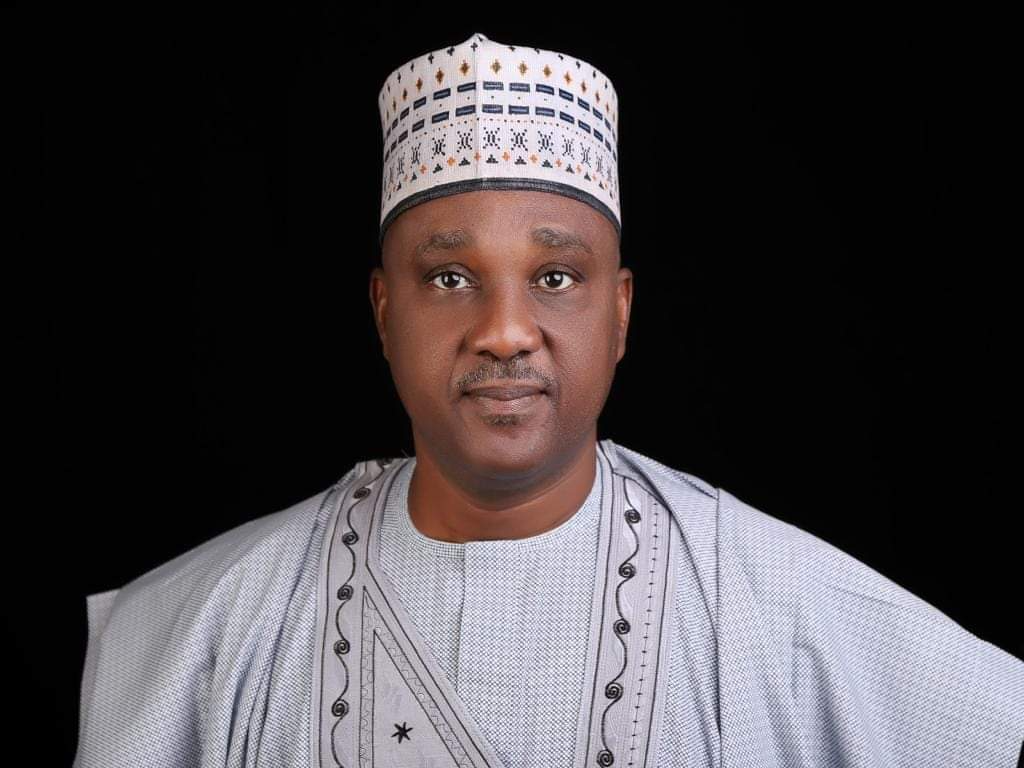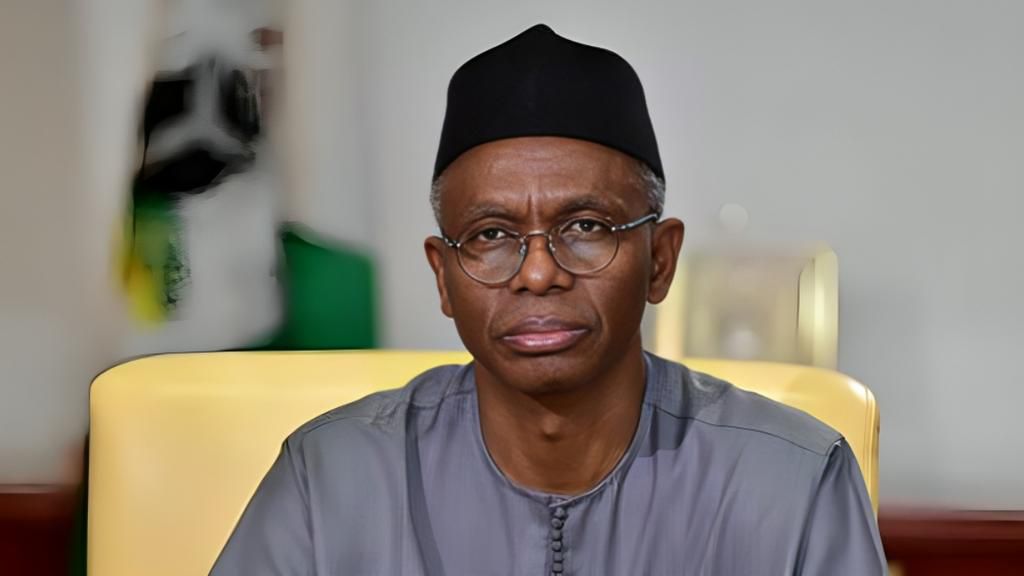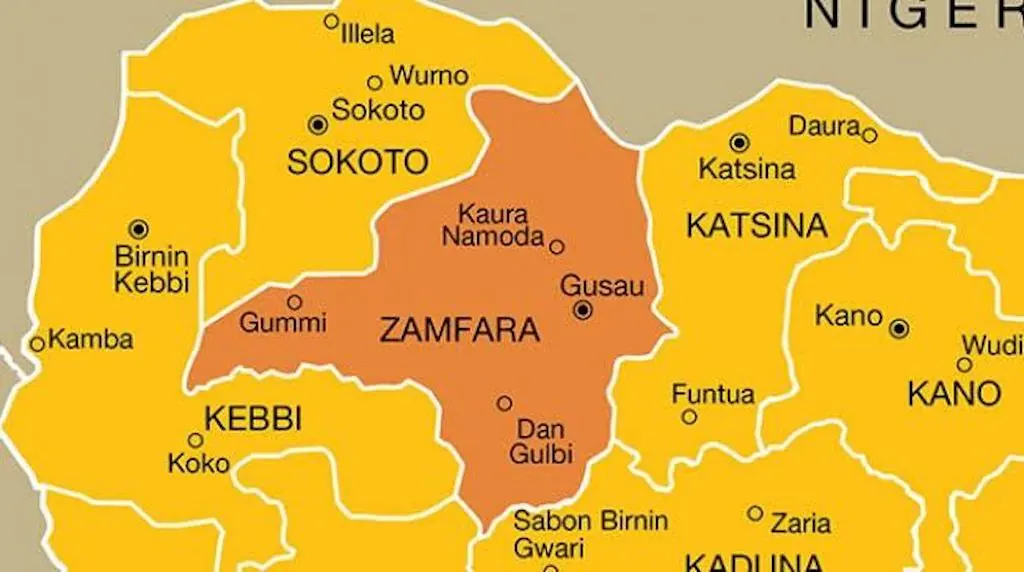Drift to one-party state
Dr. Abdullahi Ganduje, the national chairman of All Progressives Congress (APC), does not see anything wrong in a one-party state and from his body language he will not mind if all parties in this country collapse their structures and move over to the APC. Addressing State House correspondents last week Friday upon emerging from a meeting with President Bola Tinubu, he waved off concerns about the country’s political drift towards one-party state and of course, inexorably to dictatorship.
When a country moves in the direction of one-party state, it is the same story, the same hollow argument, the same old hatby it advocates: “One-party system reflected the basic consensus of African society”. (Mbah, 2007: 365). He goes on: “The one-party system was a drug which exacerbated the very disease it was taken to heal even though the ‘men’ behind it in Africa argued that the system was beneficial in order to control regional or ethnic divisions and curtail factionalism. The system became, in effect, another veritable tool in the hand of pushing back the advance of democracy and entrenching dictatorship.”
Dictatorship by its nature and practice brooks no opposition and is intolerant of alternative viewpoints. In no time opposition, though, may be cowed, begins to plan the fall of the regime. The dictator, not folding its arms, seeks to infiltrate the ranks of the opposition, some seduced and some murdered in the strongman’s bid to cling to power.
Former Secretary of State, Henry Kissinger, now of blessed memory, did say: “Power is an aphrodisiac, a sort of scintillating elixir, both to the person in power and his admirers.” Consequently, long-drawn instability in all its ramifications ensues. That has been the experience everywhere there is dictatorship.
Professor Jude Chibuzo Udenkwo of Nnamdi Azikiwe University, Awka, says: “The political tendency among executives or Heads of African States is to cling to power for a long time, even throughout their life-time.” He adds: “Modern dictators have survived by surrounding themselves with elite groups that are composed mainly of allies that were involved in the initial struggle for power. Insulating oneself with the cadre of ‘yes men’ is one part as the other is keeping up with their rents. These rents can present themselves mostly in the forms of ill-acquired wealth and influential government position. Comrades of a dictator have a lot to lose if their valued leader is overthrown. Consequently, they will go out of their way to ensure that the statuesque remains.”
Tendency towards one-party state is never wanting in salesmen. We are already being told that the defections to APC do not pose any danger to the Nigerian polity and by extension to Nigerians and the presentation is smooth. Senate Leader Opeyemi Bamidele commenting on the defection by Kebbi senators said by accommodating defectors, the Tinubu Administration is creating a government of national unity. He went on: “We will not close our doors to anyone intending to join the party and will not discriminate on the basis of religion, ethnicity or any other factor.”
Senator Adams Oshiomhole, one-time activist and for many years Labour leader before becoming a governor does not see the defection as dangerous to our democracy. He said on television that the defections do not diminish the role of debate or dissent within the National Assembly, as lawmakers typically vote on issues, not along party lines. “If you‘ve been following debates in the Senate, sometimes you can’t even tell whether someone is from the PDP or APC based on their positions.”
Oshiomhole’s response came on the heals of the increased numerical strength of APC in the Senate to 68, bringing it close to two-thirds majority. After citing examples of democratic systems in the Western world, he said, “If I see conflict between party interest and national interest, I will have no difficulty resolving it in favour of Nigeria.”
For Ganduje, he sees the switch by the senators in question as part of a democratic process. He said the defection is the result of extensive negotiations among stakeholders in the state “and it is part of APC’s broader strategy to strengthen its base. This is a good development in Nigeria today. Almost every week in the Senate and House of Representatives, you see members of other political parties decamping to our party.” He went on to say that his party’s strategy to expand both its members and the quality of its membership is in line with democratic principles. Referring to China as a successful one-party state, he said his party is not actively working to eliminate opposition. He said if one-party state is a wish of Nigeria, why not? He believes, come to think of it, one-party state could be a blessing to Nigeria after all. However, “if other political parties see the effect of the positive governance of our party and decide to come to our party willingly, I think there is nothing wrong with that. Too many political parties spoil governance.”
The question is: Why do we not encourage other parties to stand solidly on their feet to provide alternative platforms and sell your own party to the electors only on the superiority of programmes, rather than encouraging their collapse. The grundnom expects a legislator to vacate his seat and report back to his constituents who may decide to keep him in the hallowed legislative chambers or elect someone else.
But everywhere the provision in the constitution is disregarded and life goes on with the defector beating his chest. The party to apply the law is the beneficiary. The fixation is on 2027 and not on propriety and the sense of shame. Impunity does not gnaw at the recess of anyone’s heart. Abuse of power is one of the results of a one-party state. Checks and balances could be in disarray. Even in a monolithic society one-party state stifles freedom of thought and speech. Competition is not given free reign. The arbitrariness inherent in one-party state breeds revolt, parochialism and nepotism, plunging the society into chaos and confusion. And so does blurred vision.Will a one-party state be healthy for a plural society such as Nigeria?
Some City Fathers are already taken a cue putting or imposing their children on emerging dynasties to go to legislative houses. Will a one-party state be good for Nigeria with her diverse culture and different cognitive levels undergirded by inner maturity, the lack of which is the bane of mankind today? Everything is about power, influence and public acknowledgement.
Indeed, it is to hold the world together in peace and harmony as well as for what can make for development that viable options, even if they are tentative in the long run, are being considered. The world has been in disarray since the abuse of the age of the Divine Right of Kings.The right is observable in many cultures till this day. The recorded claim to ecclesial right is said to be traceable to the coronation of Charlemagne performed by the Pope on Christmas Day 800AD. The thesis that the kings were regents of the Almighty Creator and derived their authority from Him and to Him alone they were accountable held sway until what was described as Glorious Revolution in England (1688-1689), American Revolution (1775-1783) and French Revolution (1789).
The revolutions drained the contention and attendant absolutism of life and mankind then devised their own ways of governing themselves. King James 1 of England (ruled 1603-1625) was reputed to be the foremost exponent of the doctrine holding tight to the pronouncement by Apostle Paul: “Let every person be subject to the governing authorities. For there is no authority except from God, and those that exist have been instituted by God.’’ (Roman 13).
God removes kings and sets them up. (Daniel 2:21). But what is the ordinance of the Almighty Creator for governance mechanism? Were Paul and Daniel right? Is it conceivable that the Almighty, perfect as he has been and will be in all eternity, would send human spirits to this earth without providing them leaders who are to lead and guide them in their development, taking them from one step of development to the other.
According to revealed Creation Knowledge on earth today, leaders are born, not made, sent and not electable. We are now in the End-Time when the gale of purification will sweep all wrongs away, including the governmental systems devised by men.
Today, the seeds of instability are being sown in the world in accordance with man’s severe limitedness, but the harvests cannot be prevented; they are certain in the future. Adamant, immutable are the Laws of His Holy Will.












